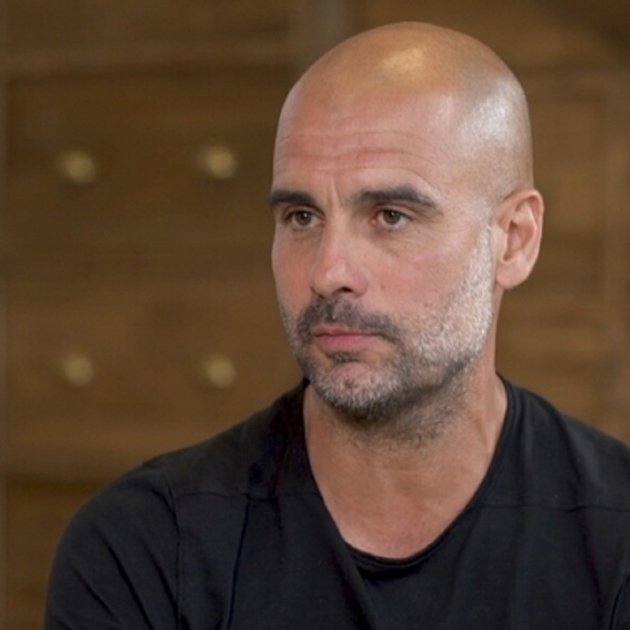Manchester City football coach Pep Guardiola, native of Catalonia, has once again spoken out in solidarity with the nine Catalan political prisoners held in Spanish prisons: Oriol Junqueras, Raül Romeva, Dolors Bassa, Carme Forcadell, Toni Comín, Jordi Turull, Josep Rull, Jordi Sànchez and Jordi Cuixart.
This time, the current Manchester City and former FCBarcelona manager has shown his solidarity in an appearance on Catalan public television's FAQS current affairs talk show. In the programme, Guardiola demands the release of the prisoners and notes that their trials are expected soon. He is extremely scathing of the imprisonment of the two pro-independence civic leaders, Jordi Sànchez and Jordi Cuixart: "So judge them, and we will judge if it is rebellion, if it is sedition, if 30 years' prison is fair for standing on the roof of a car."
The coach does not understand why the pro-independence leaders are in situation of preventive detention - having been held in jail for seven months in some cases. Guardiola accuses Spanish justice of a "lack of empathy".
Pep Guardiola has always been a solid opponent of the decision to hold the political and civic leaders in prison on remand, and for that reason he consistently wore a yellow ribbon on his jacket lapel at his team's football matches, a decision that cost him a fine of 20,000 pounds from England's Football Association.
During the interview on Catalonia's TV3, Guardiola also speaks about the pacifism of the independence movement, in statements that even prompted responses from Spain's former interior minister, Juan Ignacio Zoido. In March this year, Zoido declared that "besieging" those who do not support Catalan independence is "violence" and that attempting to impose an exclusive project "is not democratic". He made these affirmations in reply to Guardiola's statements referring to the political situation in Catalonia, saying that it is "a great injustice to compare the Catalan independence movement with the now-disbanded Basque terrorist group ETA and with associated Basque street violence".
